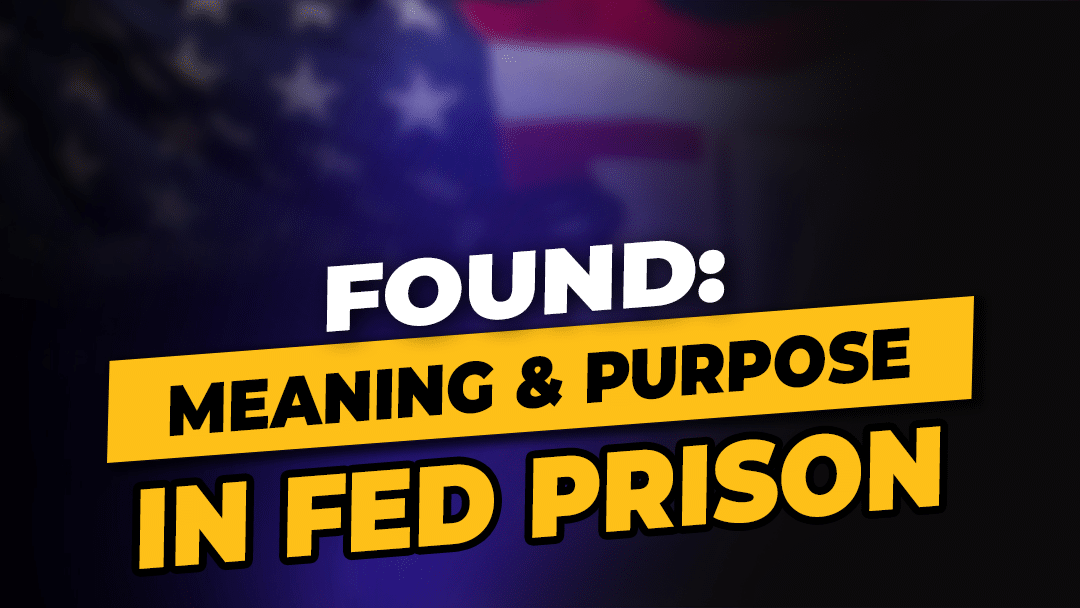In this video, Paul Bertrand and I discuss suicide prevention as it relates to criminal defendants. We want to help people recognize the signs that someone needs professional help, whether because they are criminal defendants or are undergoing other traumatic experiences.
Many white-collar criminal defendants experience mental health challenges and suicidal thoughts. Our team at White Collar Advice knows firsthand the pain of a looming criminal conviction and collateral consequences.
Suicide prevention specialists like Paul Bertrand also know. Paul was the lead FBI agent who worked on my criminal case. At one point during his 23 years with the FBI, Paul was responsible for the mental health support of all FBI employees.
For more than a decade, I have openly shared my journey through the criminal justice process, including my conviction of securities fraud and 18-month prison sentence. Most recently, in this video of my interview with Paul, I share my personal struggle when, in the middle of my criminal case, thoughts of suicide came calling.
The struggle with suicidal thoughts while going through a criminal case deserves more attention. For a criminal defendant, thinking about suicide as a possible solution is more common than people know.
After meeting Michael Santos in federal prison, I finally began to take steps to accept responsibility for my mistakes and turn my life around. Michael’s mentoring and determination inspired me to believe it is possible to find meaning and purpose out of any situation, whether that is serving a sentence in federal prison or going through any other traumatic life experience.
I believe that meaning and purpose can help people cope with the challenge of a criminal case, serving time in prison, and other difficult challenges. Paul’s experience as a suicide prevention specialist confirms that.
Here are some of the key things that worked for me in my journey to find new meaning and purpose so I could rebuild my life after prison.
I found a strong mentor. I was fortunate to find mentoring from my partner Michael Santos, who I could emulate and trust.
I looked in the mirror. Finally, I took a hard, honest look at myself and decided it was time to stop blaming others or making excuses. From that point forward, I took responsibility. Honest introspection led me to understand the underlying motivation for my criminal conduct.
I embraced gratitude. Learning from people like Victor Frankl and Michael Santos, I realized the power of being grateful for all that remains. Frankl and Michael are both powerful examples of people who discovered life’s meaning and purpose, one amid life in a concentration camp and the other while serving a 45-year prison sentence.
I focused on helping others. I am not the first to say this, but it is just as true for me: there is meaning and purpose in helping others, serving people, and belonging to something bigger than yourself. Paul and I discuss this repeatedly in the video FORMER FBI AGENT DISCUSSES SUICIDE PREVENTION. Defendants struggle most when self-absorbed and controlled by fear. It is normal. But for many of us, the antidote was gratitude, counting blessings, and focusing on others. Isolating and brooding got me nowhere.
One of the mitigation tools I use most with people battling the journey through criminal prosecution is the STRAIGHT-A GUIDE, which Michael Santos developed in prison and is widely used today.
One foundational element of the Straight-A Guide is that we find a better outcome by focusing on other stakeholders in the criminal justice system, such as the victims, prosecutors, judges, communities, families, Bureau of Prison officials, and others affected by the crime. A criminal defendant must try to avoid fixating on themselves and their personal misery and think about others.
In this clip of my interview with Paul, I asked him to share how he saw me as a criminal defendant. Among other things, Paul shares how sad it made him to watch me lie during my FBI interview. I was not ready to take responsibility. I was in deep pain, and irrationally thought that I could make the pain go away by lying. I share this because I want others to know that taking the steps I mentioned above was not easy for me. I remained defiant and in denial for a very long time before I finally began the path to find new meaning and purpose.
What I failed to appreciate at the time is lying to the FBI only makes matters worse for everyone that loves and supports me. But I was too fixated on myself to understand the bigger picture. Instead of making the case go away by lying, I was prolonging the hurt and suffering. Having a good mentor throughout that stage of the process would have made an enormous difference.
Suicidal thoughts are sometimes a cry for help, searching for a way out of a painful situation. For this reason, I am passionate about shedding light on the actual mental health struggle criminal defendants experience. We want to promote the message that suicide is not the answer to any of life’s many possible traumas. One step towards coping with the pain and getting on a path towards healing is finding meaning and purpose.
Conclusion
Once a person is on a path of healing, they can do more than just make it through a prison journey, they can thrive while serving time. They can become productive and prepare to emerge from prison more focused and stronger, ready to rebuild their lives and give back. The key is to embrace their personal reasons to move forward. The key lies in finding meaning and purpose in federal prison.
Justin Paperny
P.S. If you have thoughts about suicide, please know you are not alone and options do exist. To start, please call the National Suicide Prevention Lifeline at 1-800-273-8255 or text the Crisis Text Line at 741741.

